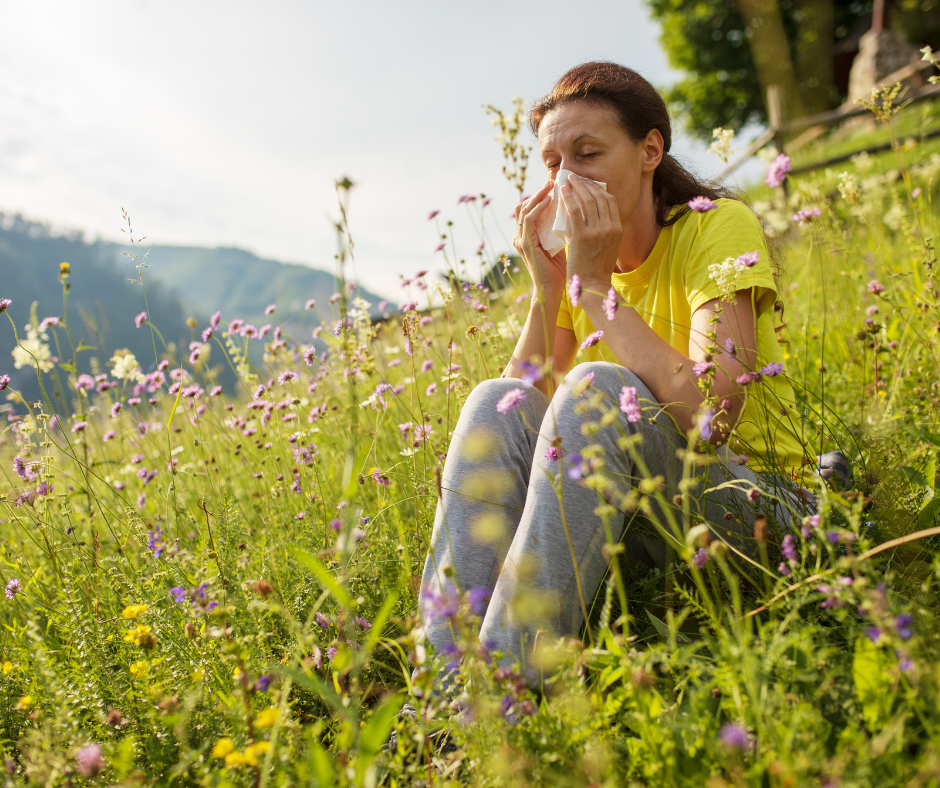Managing Seasonal Allergies: How Primary Care Can Help
Managing Seasonal Allergies: How Primary Care Can Help

As spring and summer approach, many adults start to notice the familiar signs of seasonal allergies: sneezing, congestion, itchy eyes, and fatigue. If you're experiencing these symptoms, you're not alone. Seasonal allergies — also called allergic rhinitis or “hay fever” — affect millions of Americans every year.
At Yarmouth Medical Center, our primary care team is here to help you recognize, manage, and treat your seasonal allergies so you can enjoy the seasons with fewer symptoms.
What Causes Seasonal Allergies?
Seasonal allergies happen when your immune system overreacts to allergens in the environment, such as:
- Pollen from trees, grasses, and weeds
- Mold spores
- Dust mites stirred up during seasonal cleaning
- Outdoor air pollutants
These allergens trigger the release of histamines in your body, leading to common allergy symptoms.
Common Symptoms of Seasonal Allergies
You might be dealing with allergies if you notice:
- Sneezing
- Nasal congestion or runny nose
- Itchy or watery eyes
- Scratchy throat
- Sinus pressure or headaches
- Fatigue or feeling run down
Symptoms often worsen when pollen counts are high — typically early in the morning or on windy days.
How Primary Care Can Help
Many people try to manage allergies on their own with over-the-counter medications, but visiting your primary care provider can make a big difference. We can help by:
- Confirming a diagnosis: Allergy symptoms can mimic colds, sinus infections, or COVID-19. A correct diagnosis is key.
- Personalized treatment plans: We offer tailored recommendations based on your specific symptoms and medical history.
- Prescription options: If OTC medications aren’t enough, we can prescribe stronger antihistamines, nasal sprays, or other therapies.
- Allergy testing referrals: If needed, we can refer you for allergy testing to identify specific triggers.
- Long-term prevention strategies: Learn how to reduce exposure and manage symptoms year-round.
Tips for Managing Seasonal Allergies at Home
Along with medical treatment, you can take simple steps to minimize your symptoms:
- Check daily pollen counts and limit outdoor activities when counts are high.
- Shower and change clothes after spending time outdoors.
- Keep windows closed and use air conditioning with a clean filter.
- Use a HEPA air purifier indoors.
- Rinse your sinuses with a saline spray to clear allergens from nasal passages.
When to See Your Doctor
If your symptoms are persistent, worsening, or affecting your quality of life, it's time to seek medical advice. Allergy symptoms can also trigger asthma attacks or lead to complications like sinus infections if left untreated.
At Yarmouth Medical Center, we’re committed to helping you breathe easier and enjoy every season.
Contact us today to schedule an appointment and take the first step toward relief.



